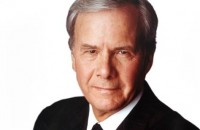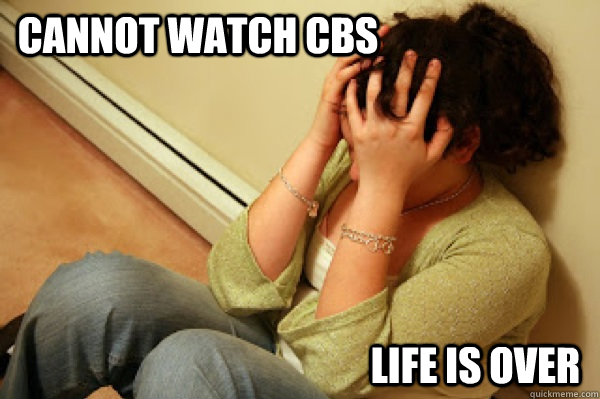The decision to forgo distribution is referred to as a “blackout” in the cable context and “blocking” in the Internet context, but the economic considerations affecting such negotiations are substantially the same.
The American Television Alliance (ATVA), a coalition comprised primarily of cable and satellite TV operators, is using the playbook of net neutrality proponents in abid to convince the Federal Communications Commission (FCC) to regulate prices for broadcast television content. The goal of ATVA’s cable and satellite members is to increase their profit margins by convincing the government to artificially lower the cost of programming they resell to consumers. I suspect the goal of ATVA’s non-profit members, e.g., Public Knowledge and New America Foundation, is to solidify the FCC’s flawed rationale for adopting net neutrality rules in 2010, which imposed restrictions on market arrangements between Internet Service Providers (ISPs) and Internet content providers without finding a market failure.
Many of ATVA’s cable members are also ISPs that have routinely argued against the imposition of net neutrality regulations in the market for Internet services. By supporting ATVA, these same companies appear to have abandoned the intellectual foundation for opposition to net neutrality. Are they now signaling their intent to embrace net neutrality regulation of the Internet? Continue reading →
Continue reading →
From the time Tom Wheeler was nominated to become the next FCC Chairman, many have wondered, “What would Wheeler do?” Though it is still early in his chairmanship, the only ruling issued in Chairman Wheeler’s first meeting signals a pro-investment approach to communications regulation.
The declaratory ruling clarified that the FCC would evaluate foreign investment in broadcast licensees that exceeds the 25 percent statutory benchmark using its existing analytical framework. It had previously been unclear whether broadcasters were subject to the same standard as other segments of the communications industry. The ruling recognized that providing broadcasters with regulatory certainty in this respect would promote investment and that greater investment yields greater innovation.
The FCC’s decision to apply the same standards for reviewing foreign ownership of broadcasters as it applies to other segments of the communications industry is very encouraging. It affirms the watershed policy decisions in the USF/ICC Transformation Order, in which the FCC concluded that “leveling the playing field” promotes competition whereas implied subsidies deter investment and are “unfair for consumers.” Continue reading →
 I think I owe Tom Brokaw an apology. When I first started reading his most recent Wall Street Journal column, “Imagine the Tweets During the Cuban Missile Crisis,” I assumed that I was in for one of those hyper-nosalgic essays about how the ‘good ‘ol days’ of mass media had passed us by and why the new media era is an unmitigated disaster. Instead, I was pleased to read his very balanced and sensible view of the old versus news media environments. Reflecting on the evolution of the media marketplace over the past 50 years since JFK’s assassination, Brokaw notes that:
I think I owe Tom Brokaw an apology. When I first started reading his most recent Wall Street Journal column, “Imagine the Tweets During the Cuban Missile Crisis,” I assumed that I was in for one of those hyper-nosalgic essays about how the ‘good ‘ol days’ of mass media had passed us by and why the new media era is an unmitigated disaster. Instead, I was pleased to read his very balanced and sensible view of the old versus news media environments. Reflecting on the evolution of the media marketplace over the past 50 years since JFK’s assassination, Brokaw notes that:
The media climate has changed dramatically. The New Frontier, as Kennedy liked to call his administration, received a great deal of attention, but 50 years ago the major national information sources consisted of a handful of big-city daily newspapers, a few weekly news periodicals and two dominant TV network evening newscasts. Now the political news comes at us 24/7 on cable, through the air, the digital universe, on radio and print. And it comes to us more and more as opinion rather than a recitation of the facts as best they can be determined. News is a hit-and-run game, for the most part, with too little accountability for error.
This leads Brokaw to wonder if the amazing media metamorphosis has been, on net, positive or negative. “The virtual town square has been wired and expanded,” he notes, “but the question remains whether more voices make for a healthier political climate. With a keystroke we can easily move from an online credible source of information to a website larded with opinion or deliberately malicious erroneous claims. Have we simply enlarged the megaphone, cranked up the decibel level, and rallied the like-minded without regard to facts or consequences?” Continue reading →
Christopher Wolf, director of the law firm Hogan Lovells’ Privacy and Information Management group, addresses his new book with co-author Abraham Foxman, Viral Hate: Containing Its Spread on the Internet. To what extent do hateful or mean-spirited Internet users hide behind anonymity? How do we balance the protection of the First Amendment online while addressing the spread of hate speech? Wolf discusses how to define hate speech on the Internet; whether online hate speech leads to real-world violence; how news sites like the Huffington Post and New York Times have dealt with anonymity; lessons we should impart on the next generation of Internet users to discourage hate speech; and cases where anonymity has proved particularly beneficial or valuable.
Download
Related Links
Yesterday, Time Warner Cable and CBS reached a deal to end the weeks-long impasse that had resulted in CBS being blacked out in over 3 million U.S. households.
I predicted the two companies would resolve their differences before the start of the NFL season in a RealClearPolicy op-ed published last week:
From Los Angeles to New York, 3 million Americans in eight U.S. cities haven’t been able to watch CBS on cable for weeks, because of a business dispute between the network and Time Warner Cable (TWC). The two companies can’t agree on how much TWC should pay to carry CBS, so the network has blacked out TWC subscribers since August 1. With the NFL season kicking off on September 5, the timing couldn’t be worse for football fans.
Regulators at the Federal Communications Commission (FCC) face growing pressure to force the feuding companies to reach an agreement. But despite viewers’ frustrations with this standoff, government intervention isn’t the answer. If bureaucrats begin “overseeing” disputes between network owners and video providers, television viewers will face higher prices or lower-quality shows.
TWC and CBS are playing hardball over serious cash. CBS reportedly seeks to double its fee to $2 per subscriber each month, which TWC claims is an outrageous price increase. But CBS argues it costs more and more to develop hit new shows like Under the Dome, so it’s only fair viewers pay a bit more.
Both sides have a point. TWC is looking out for its millions of subscribers—and its bottom line—by keeping programming costs down. CBS, on the other hand, needs cash to develop creative new content, and hopes it can make some money doing so.
Continue reading →
Timothy B. Lee, founder of The Washington Post’s blog The Switch discusses his approach to reporting at the intersection of technology and policy. He covers how to make tech concepts more accessible; the difference between blogs and the news; the importance of investigative journalism in the tech space; whether paywalls are here to stay; Jeff Bezos’ recent purchase of The Washington Post; and the future of print news.
Download
Related Links
 There are few things more likely to get constituents to call their representative than TV programming blackouts, and the increase in broadcasting disruptions arising from licensing disputes in recent years means Congress may be forced to once again fix television and copyright laws. As Jerry Brito explains at Reason, the current standoff between CBS and Time Warner Cable is the result of bad regulations, which contribute to more frequent broadcaster blackouts. While each type of TV distributor (cable, satellite, broadcasters, telcos) is both disadvantaged and advantaged through regulation, broadcasters are particularly favored. As the US Copyright Office has said, the rule at issue in CBS-TWC is “part of a thicket of communications law requirements aimed at protecting and supporting the broadcast industry.”
There are few things more likely to get constituents to call their representative than TV programming blackouts, and the increase in broadcasting disruptions arising from licensing disputes in recent years means Congress may be forced to once again fix television and copyright laws. As Jerry Brito explains at Reason, the current standoff between CBS and Time Warner Cable is the result of bad regulations, which contribute to more frequent broadcaster blackouts. While each type of TV distributor (cable, satellite, broadcasters, telcos) is both disadvantaged and advantaged through regulation, broadcasters are particularly favored. As the US Copyright Office has said, the rule at issue in CBS-TWC is “part of a thicket of communications law requirements aimed at protecting and supporting the broadcast industry.”
But as we approach a damaging tipping point of rising programming costs and blackouts, Congress’ potential rescuer–Aereo–appears on the horizon, possibly buying more time before a major regulatory rewrite. Aereo, for the uninitiated, is a small online company that sets up tiny antennas in certain cities to capture broadcast television station signals–like CBS, NBC, ABC, Fox, the CW, and Univision–and streams those signals online to paying customers, who can watch live or record the local signals captured by their own “rented” Aereo antenna. Broadcasters hate this because the service deprives them of lucrative retransmission fees and unsuccessfully sued to get Aereo to cease operations. Continue reading →

Over at Reason.com, I write today about the ongoing Time Warner-CBS blackout and point out that Congress and the FCC have tipped the scales in favor of broadcasters with, inter alia, free spectrum, must-carry power, retrans consent rights, network non-duplication rules, and my personal favorite, syndicated exclusivity privileges. It’s just not a fair negotiating environment. But, and this is important, two wrongs don’t make a right.
Trying to plan the market got us into this mess, and making new rules to try to “even out” the playing field is only further distorting the market. As I say,
Congress should completely deregulate the video distribution marketplace by repealing broadcaster’s special rights. While the they’re at it they should also end compulsory copyright licensing that allows video distributors like cable companies to pay regulated rates for the programs they retransmit, rather than negotiate. And they should privatize the spectrum, rather than continue to give it away to broadcasters in the name of the “public interest.”
You can read the whole thing here. And after you’re done, you can listen to my colleague Adam Thierer make much the same case opposite Susan Crawford on the Diane Rehm Show earlier today. Audio is available here.
Plugs out of the way, I want to take a moment to address a small point that really grinds my gears, as Home Simpson would say. It’s the constant refrain I hear about blackouts that consumers are being “victimized” by the impasse in negotiations. Some examples,
Continue reading →
 CBS and Time Warner Cable have been embroiled in a heated contractual battle over the past week that has resulted in viewers in some major markets losing access to CBS programming. When disputes like these go nuclear and signal blackouts occur, it is inevitable that some folks will call for policy interventions since nobody likes it when the content they love goes dark.
CBS and Time Warner Cable have been embroiled in a heated contractual battle over the past week that has resulted in viewers in some major markets losing access to CBS programming. When disputes like these go nuclear and signal blackouts occur, it is inevitable that some folks will call for policy interventions since nobody likes it when the content they love goes dark.
While some policy responses are warranted in this matter, policymakers should proceed with caution. Heated contractual negotiations are a normal part of any capitalist marketplace. We shouldn’t expect lawmakers to intervene to speed up negotiations or set content prices because that would disrupt the normal allocation of programming by placing a regulatory thumb too heavily on one side of the scale. This is why I am somewhat sympathetic to CBS in this fight. In an age when content creators struggle to protect their copyrighted content and get compensation for it, the last thing we need is government intervention that undermines the few distribution schemes that actually work well.
On the other hand, Time Warner Cable deserves sympathy here, too, since CBS currently enjoys some preexisting regulatory benefits. As I noted in this 2012 Forbes oped, “Toward a True Free Market in Television Programming,” many layers of red tape still encumber America’s video marketplace and prevent a truly free market in video programming from developing. The battle here revolves around the “retransmission consent” rules that were put in place as part of the Cable Act of 1992 and govern how video distributors carry signals from TV broadcasters, which includes CBS.
But those “retrans” rules are not the only part of the regulatory mess here. Continue reading →




 There are few things more likely to get constituents to call their representative than TV programming blackouts, and the increase in broadcasting disruptions arising from licensing disputes in recent years means Congress may be forced to once again fix television and copyright laws. As
There are few things more likely to get constituents to call their representative than TV programming blackouts, and the increase in broadcasting disruptions arising from licensing disputes in recent years means Congress may be forced to once again fix television and copyright laws. As 

 The Technology Liberation Front is the tech policy blog dedicated to keeping politicians' hands off the 'net and everything else related to technology.
The Technology Liberation Front is the tech policy blog dedicated to keeping politicians' hands off the 'net and everything else related to technology.